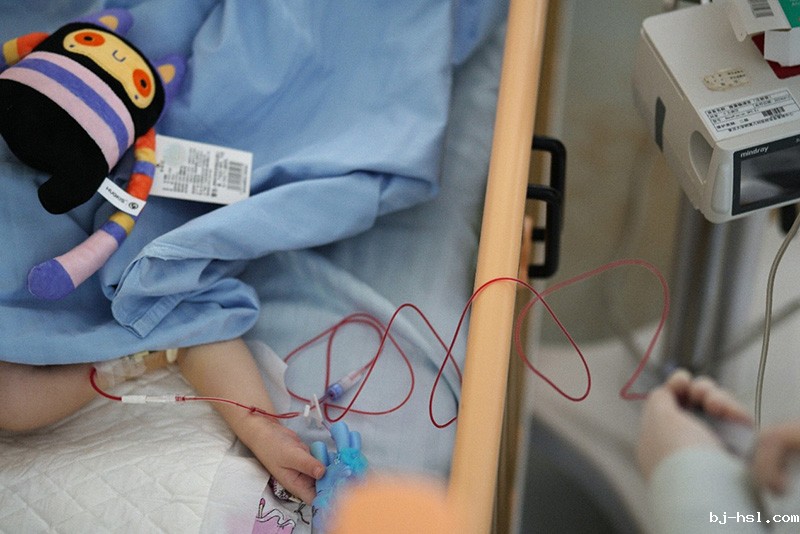On the first day of the Chinese New Year, cord blood stem cells were slowly infused into a sleeping princess in the haematology ward of Children’s Hospital of Fudan University. The girl's mother is humming a soft lullaby at her bedside, hoping that when she wakes up, she will be able to regain her life together with this lively new year.
Mary (a pseudonym), a 4-year-old girl from Russia, suddenly developed motor regression a year ago, and was unable to walk or sit down on her own. 4 months ago, her condition worsened, and she suffered convulsive seizures. The parents were distraught and anxious.
At a local hospital in Russia, Mary was diagnosed with a congenital hereditary lysosomal storage disorder. After a genetic diagnosis, it became clear that her disease was caused by a defect in the ASAH1 gene. This is an extremely rare genetic disorder, with only 10 or so case reports existing in the literature. Due to the inborn defect in the gene, the metabolism in the body is disturbed, resulting in damage to multiple organs. Traditional treatments include the use of antiepileptic drugs and rehabilitation, but the prognosis is poor and there are often premature deaths.
Mary's parents consulted pediatricians in Europe and the United States, and doctors suggested stem cell transplantation as a treatment option. Stem cell transplantation can stop the progression of the disease, save lives and provide room for subsequent recovery compared to traditional treatments.
Mary's parents learned from a friend that the Children’s Hospital of Fudan University in Shanghai, China, has mature experience in stem cell transplantation, so they immediately contacted the ‘International Consultation Room at Sea’ platform of the hospital. The hospital quickly organised an online consultation with multidisciplinary experts, including Professor Wang Yi, President of Children’s Hospital of Fudan University and head of Neurology, Professor Huang Taosheng, Director of Clinical Genetics, Professor Zhai Xiaowen, head of Haematology, and a number of specialists from relevant clinical departments, to assess, analyse and diagnose Mary's condition, and ultimately to decide on a treatment plan for stem cell transplantation and a specific plan.
With the assistance of Hospital, Mary's family quickly applied for medical visas to China and arrived in Shanghai on 22th December 2024, where they underwent a series of examinations, assessments and medication interventions. On the first day of the Lunar New Year, Mary and her mother entered the haematology laminar flow ward early. At nine o'clock, the umbilical cord blood stem cells carrying the life force began to be slowly infused into Mary's body. The hope of a new life finally came to this girl with the dawn of the New Year.
It is reported that the multidisciplinary team of Fudan Paediatrics Stem Cell Transplantation for Children with Rare Diseases was established in August 2016. The team gathers more than 30 experts related to the diagnosis and treatment of rare diseases in paediatric hospitals and focuses on the treatment of children's refractory rare diseases with stem cell transplantation, and it has already completed more than 500 cases of stem cell transplantation for children with rare diseases, with a success rate of more than 75%.
The team has established a perfect diagnosis and treatment system of early screening, precise diagnosis, pre-transplantation intervention, transplantation treatment and post-transplantation multidisciplinary follow-up for children with refractory rare diseases, ensuring that every patient with rare childhood diseases with indications for stem cell transplantation can receive timely and effective treatment.
The reporter was also informed that Fudan Paediatrics is a pilot unit of international medical tourism in Shanghai public hospitals. Relying on the International Consultation Hall on the sea, the hospital has gathered experts from home and abroad, and has treated more than 30 complicated cases from the United States, Japan, Germany, Russia, Pakistan, Malaysia, Uzbekistan and other places. In the future, the hospital will continue to improve medical technology, strengthen humanistic care and concern, and use Chinese wisdom and Chinese solutions to help more needy overseas children recover their health.
